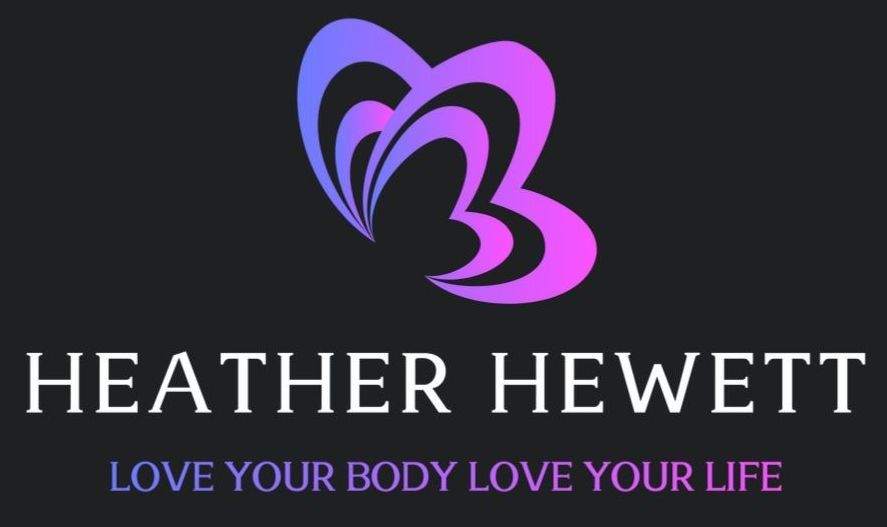What is Holistic Health Practioner and how Can They Benefit Your Well-Being?
A holistic health practitioner is someone who takes a comprehensive approach to health, focusing on the entire person: body, mind, and spirit. They employ natural, non-invasive methods such as herbal medicine, acupuncture, energy healing, and nutrition counseling to promote health and wellness. Unlike conventional medicine, which often treats symptoms in isolation, holistic health practitioners seek to uncover the root causes of health concerns, aiming for long-term wellness by addressing physical, emotional, and spiritual imbalances. This guide offers a comprehensive look at holistic health practitioners, their therapies, and how they can benefit your well-being.
In today’s fast-paced, stressful world, many individuals are seeking ways to improve their health that go beyond traditional medical practices. Holistic health practitioners are emerging as key figures in the growing movement toward integrative, natural healthcare. These professionals work with clients to address the root causes of health issues, rather than simply treating symptoms, offering therapies that support overall well-being.
The holistic approach to health is centered on the idea that the mind, body, and spirit are interconnected. By focusing on all these elements together, holistic health practitioners can help individuals achieve a greater sense of balance and health. Many people find this approach to be more aligned with their own values, offering a path to healing that is more personalized and sustainable.
If you’ve been considering a holistic health approach or are curious about what holistic health practitioners do, this comprehensive guide will provide you with everything you need to know. It will explore the role of these professionals, the types of therapies they offer, how to choose the right one for your needs, and the many benefits of embracing a holistic approach to health.
Why Holistic Health Practitioners Matter in 2025
As we look ahead to 2025, the role of holistic health practitioners is set to become even more significant. The demand for alternative and complementary health solutions has been steadily increasing, driven by several factors, including a desire for more personalized care, dissatisfaction with conventional medical treatments, and a growing awareness of the importance of mental and emotional health. The holistic health industry is growing rapidly, with some estimates predicting that the wellness economy will reach over $4.5 trillion by 2025, with a large portion of that growth coming from alternative and natural healing practices.
Holistic health practitioners are at the forefront of this movement, offering a broad range of services that address both the physical and emotional aspects of well-being. Their approach is particularly effective in treating chronic conditions, mental health issues, and stress-related illnesses, which are increasingly common in today’s society. According to a 2023 report from the National Center for Complementary and Integrative Health (NCCIH), nearly 40% of adults in the U.S. report using some form of alternative medicine, highlighting the growing acceptance and popularity of holistic approaches.
The holistic health field also benefits from its emphasis on personalized care. Unlike conventional medicine, which often takes a one-size-fits-all approach, holistic health practitioners create customized treatment plans that address the unique needs and goals of each individual. As a result, clients experience more meaningful and sustainable improvements in their health, fostering long-term wellness.
“Holistic health practitioners are essential in 2025 due to the rising demand for natural, integrative healthcare solutions, with a focus on personalized, whole-body wellness.”
What Does a Holistic Health Practitioner Do?
Holistic health practitioners are trained to take a comprehensive approach to wellness. They focus on treating the whole person rather than just addressing isolated symptoms. This holistic perspective includes physical, mental, and emotional well-being, recognizing that these elements are interconnected and must be balanced for optimal health. The treatments provided by holistic health practitioners are based on natural and non-invasive methods, which help the body’s innate ability to heal itself.
Some of the most common therapies that holistic health practitioners use include:
Herbal Medicine
Herbal medicine is one of the oldest forms of healing, with plants and herbs being used for thousands of years to treat a variety of conditions. Holistic health practitioners may recommend herbs to address specific health issues such as immune system support, digestive problems, and stress relief. Some commonly used herbs include:
Chamomile for relaxation and stress reduction.
Echinacea for immune system support.
Ginger for digestive health and inflammation.
Lavender for anxiety and sleep support.
Acupuncture
Acupuncture is a traditional Chinese medicine technique that involves inserting fine needles into specific points on the body to restore balance. Acupuncture is commonly used to treat conditions such as chronic pain, anxiety, insomnia, and digestive issues. It has been shown to have therapeutic effects on a wide range of health problems, with studies suggesting that acupuncture can help reduce pain, improve circulation, and regulate bodily functions.
Nutritional Counseling
Holistic health practitioners often specialize in nutrition and offer counseling to help clients make dietary choices that support their overall health. This may involve suggesting whole foods, and occasional supplements, or other dietary adjustments to help manage chronic conditions such as diabetes, high blood pressure, and digestive issues. Nutritional counseling also plays a crucial role in weight management, gut health, and overall vitality.
Somatic Work: Somatic work is a body-centered approach to healing that helps you reconnect with your physical and emotional self—especially after chronic stress, trauma, or disconnection.
The word “somatic” comes from the Greek word soma, meaning the living body in its wholeness. Somatic practices recognize that your body holds your life experiences—not just in your mind, but in your nervous system, muscles, breath, and even posture.
When you’ve been overwhelmed, overstimulated, or emotionally hurt (especially repeatedly), your body may hold onto those experiences through chronic tension, anxiety, numbness, or fatigue. Somatic work helps you gently release what’s stuck and reclaim a sense of safety, presence, and vitality.
Emotional Freedom Techniques (EFT): A form of tapping therapy that helps release emotional blockages by tapping on specific acupuncture points while focusing on the issue at hand.
Mind-Body Therapies
Mind-body therapies are designed to help clients achieve mental and emotional balance through practices that reduce stress and improve mindfulness. Common mind-body therapies used by holistic health practitioners include:
Mindfulness Meditation: A practice that helps calm the mind, improve focus, and reduce stress. Mindfulness meditation is the practice of becoming fully present in the moment—gently noticing your thoughts, emotions, and body sensations without judgment. It’s not about “emptying your mind” or doing it perfectly. It’s about creating space within yourself to just be, with compassion and curiosity.
Mindfulness invites you to shift from reacting automatically to responding with awareness. Over time, this simple but powerful practice helps you feel more grounded, emotionally balanced, and in tune with your needs.
Breathwork: Techniques that focus on controlling the breath to promote relaxation and healing.
These therapies are not only effective for physical health but also provide valuable tools for improving mental clarity, reducing stress, and fostering emotional well-being.
"Holistic health practitioners treat the whole person using natural methods such as herbal medicine, acupuncture, Somatic Work, and mind-body therapies to restore balance and promote overall wellness."
“Holistic health practitioners treat individuals using a combination of natural therapies, including herbal medicine, acupuncture, Somatic Work, and nutritional counseling, to address the root causes of health issues.”
How to Find the Right Holistic Health Practitioner
Finding the right holistic health practitioner is essential to achieving your wellness goals. Since holistic health is highly personalized, it’s important to choose a practitioner whose approach and expertise align with your specific needs. Here are some steps to help you find the best practitioner for your health:
Clarify Your Health Goals
Before you start your search, take some time to reflect on your health goals. Are you dealing with chronic pain, digestive issues, stress, or mental health concerns? Knowing your specific goals will help you identify practitioners who specialize in the areas that are most important to you.
Research Practitioners
Use trusted resources such as the American Holistic Health Association (AHHA) or the National Certification Commission for Acupuncture and Oriental Medicine (NCCAOM) to find qualified practitioners in your area. Many holistic health practitioners have websites or social media profiles where you can learn more about their practice, approach, and areas of specialization. Be sure to look for practitioners who have the relevant certifications and qualifications for the type of therapy you are seeking.
Check Reviews and References
Online reviews can provide valuable insight into the experiences of others who have worked with a particular practitioner. While reviews are not always 100% reliable, they can give you a sense of what to expect from a practitioner. Additionally, ask for references from the practitioner or seek recommendations from friends, family, or other healthcare providers.
Schedule a Consultation
Many holistic health practitioners offer initial consultations, which allow you to get to know them and discuss your health concerns. Use this time to ask questions about their background, experience, and treatment approach. A consultation is also a good opportunity to see if you feel comfortable with their communication style and philosophy.
Evaluate Compatibility
It’s essential to feel comfortable with your holistic health practitioner. The therapeutic relationship between a client and practitioner is often built on trust and mutual respect, so it’s important that you feel at ease with them. During your consultation, assess whether the practitioner’s approach resonates with you and whether they take the time to listen to your concerns and answer your questions.
“To find the right holistic health practitioner, clarify your goals, research qualified professionals, check reviews, schedule a consultation, and evaluate compatibility.”
“Find the right holistic health practitioner by assessing your health goals, researching qualified professionals, and ensuring compatibility through consultations.”
Common Mistakes and How to Avoid Them
When exploring holistic health practices, people often make mistakes that can affect their treatment outcomes. Here are some common mistakes to avoid:
Neglecting to Check Qualifications
While many holistic practitioners are skilled and well-trained, it's essential to verify their credentials. Look for practitioners who are certified by recognized organizations, such as the National Certification Commission for Acupuncture and Oriental Medicine (NCCAOM) or the American Holistic Health Association (AHHA). Certification ensures that the practitioner has undergone the necessary training and adheres to professional standards.
Expecting Instant Results
Holistic treatments often take time to show results. Unlike conventional medicine, which may offer quick fixes, holistic therapies focus on long-term healing. Be patient and allow time for your body to respond to treatment. It’s important to maintain a consistent treatment regimen and be open to making lifestyle changes as recommended by your practitioner.
Relying on One Treatment
Holistic health is about balance, so it’s essential to embrace multiple forms of therapy. Relying on a single treatment, such as acupuncture alone, may not address all aspects of your health. Work with your practitioner to create a well-rounded treatment plan that incorporates different modalities to support your healing process.
Neglecting Traditional Medicine
While holistic therapies can be highly effective, they should not replace conventional medicine when necessary. For serious health conditions, always consult with a medical doctor, and work with both your conventional and holistic healthcare providers to ensure comprehensive care.
Not Addressing Lifestyle Factors
Holistic health is not just about treatments; it’s also about adopting a healthy lifestyle. Nutrition, exercise, sleep, and stress management are key components of overall wellness. Ignoring these aspects can hinder the effectiveness of your holistic treatments. Work with your practitioner to develop a comprehensive wellness plan that includes lifestyle changes.
“Avoid mistakes such as neglecting qualifications, expecting immediate results, and failing to address lifestyle factors for optimal holistic health outcomes.”
Top Tools and Resources for Holistic Health Practitioners
There are a variety of tools and resources available to help holistic health practitioners enhance their skills and support their clients’ wellness. Here are some valuable resources:
Certification Programs
Many holistic health practitioners undergo specialized training and certification to ensure they are qualified to provide safe and effective treatments. Organizations like the
National Institute of Integrative Medicine (NIIM) and the
National Certification Commission for Acupuncture and Oriental Medicine (NCCAOM) offer certification programs for various holistic therapies.
Books and Educational Resources
Reading books on holistic health is a great way to deepen your knowledge and understanding of natural healing. Titles like
The Holistic Health Handbook and Integrative Medicine provide in-depth information on the various therapies used in holistic health and their benefits.
Online Directories
Online directories such as the
American Holistic Health Association (AHHA) and
Holistic Health Network provide comprehensive lists of qualified practitioners in various fields, allowing you to find someone who specializes in the therapies that interest you.
Mindfulness and Meditation Apps
Apps like
Calm,
Insight Timer, and
Headspace offer valuable tools for mindfulness, meditation, and stress reduction. These apps complement the work of holistic practitioners by helping individuals maintain mental clarity and
emotional balance between sessions.
Wellness Retreats and Workshops
Attending wellness retreats and workshops can help deepen your understanding of holistic health and provide you with hands-on experience. Many holistic health practitioners offer retreats that focus on topics like
nutrition, energy healing, and stress management.
“Key resources for holistic health practitioners include certification programs, educational books, online directories, wellness apps, and retreats for further learning.”
FAQ
What is a holistic health practitioner?
A holistic health practitioner is a professional who uses natural therapies such as acupuncture, herbal medicine, and nutritional counseling to treat the whole person—body, mind, and spirit. They focus on uncovering the root causes of health issues rather than just masking symptoms.
How do I find a holistic health practitioner?
Start by researching practitioners through trusted directories like the American Holistic Health Association (AHHA). Check their credentials, read reviews, and schedule consultations to determine if their approach aligns with your health needs.
What types of treatments do holistic health practitioners offer?
Holistic health practitioners offer a variety of treatments, including acupuncture, herbal medicine, mind-body therapies, Somatic work and mindfulness, and nutritional counseling.
Can holistic health practitioners help with mental health?
Yes, holistic health practitioners can help with mental health issues like anxiety, depression, and stress by using therapies such as meditation, EFT, breathwork, and dietary adjustments.
Are holistic health treatments covered by insurance?
Insurance coverage for holistic health treatments depends on your provider and the type of treatment. Some treatments like acupuncture, chiropractic care, and certain types of massage therapy may be covered by insurance, while others may not.
About the Author
Heather M. Hewett is a Board-Certified Traditional Naturopath, Clinical Nutritionist, and Holistic Health & Wellness Practitioner with over 22 years of experience in the field. As the founder of Heather M Hewett LLC, she specializes in guiding individuals toward emotional resilience, sustainable weight loss, and holistic well-being.
Drawing from her personal journey of overcoming binge eating and a significant weight gain of 100 pounds, Heather offers a compassionate and comprehensive approach to health. Her coaching philosophy integrates gut microbiome nutrition, somatic emotional regulation, and behavioral change strategies to help clients transform their relationship with food and themselves.
Through personalized one-on-one coaching and group programs like "Love Your Body, Love Your Life!", Heather empowers individuals to break free from limiting beliefs, conquer emotional triggers, and embrace a life filled with vitality and purpose. Her work emphasizes the interconnectedness of the mind, body, and spirit, fostering a holistic foundation for lasting wellness.
Heather is also the author of Natural Health Simplified, a resource that distills complex health concepts into practical, actionable insights. Her dedication to client transformation and her empathetic approach make her a trusted guide on the path to holistic health.





